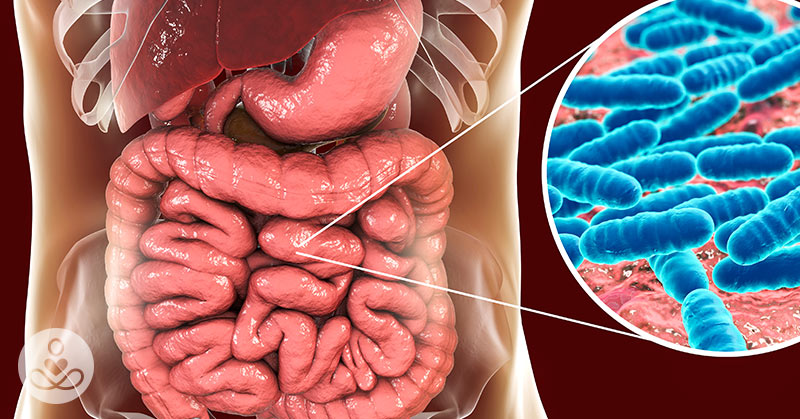We know the basic steps to keeping a young, healthy brain: eat healthy, exercise, and get a good night’s sleep. Our brain health may also be influenced by an unexpected source — our second brain. Within the walls of our digestive system is the gut, or the “second brain,” which contains bacteria that could help mold our brain structure, possibly influencing our moods, behavior, and mental health, such as the likelihood of developing Alzheimer’s disease.
In the infographic, “Can Bacteria Talk To Your Brain? Your Microbes and Mental Health,” LabRoots, a website that emphasizes digital innovation in scientific collaboration and learning, shows how the brain and the digestive system are intricately linked. The gut is able to communicate with the brain via the vagus nerve — a cranial nerve extending from the brainstem to the abdomen via the heart, esophagus and lung — known as the gut-brain axis. Ninety percent of the fibers in the vagus carry information from the gut to the brain.
This communication happens through molecules that are produced by gut bacteria and then enter the bloodstream. These molecules are strong enough to change the behavior of mice.The blood releases both neuroactive compounds and hormones, which enter the bloodstream, and go to the brain.
The human body actually has around 4 pounds of gut bacteria. When these bacteria become imbalanced, it can lead to unwanted symptoms, such as:
- Gas
- Bloating
- Diarrhea
- Joint pain
- Weight gain or loss
- Headaches
- Rashes
- Memory problem
- Painful periods
- Fatigue
- Poor sleep
What Does an Imbalance of Healthy and Harmful Gut Bacteria Do?
Now, an imbalance of beneficial versus harmful gut bacteria, known as “dysbiosis,” has been linked to a number of psychiatric and neurological disorders, such as autism, anxiety, depression and stress. It may even play a role in neurodegenerative diseases, such as Alzheimer’s and Parkinson’s disease. This suggests a person’s stomach or intestinal distress can be the cause or the product of anxiety, stress, or depression. This is potentially related to pro-inflammatory states elicited by bacteria imbalance on or inside the body.
Further, there is research that suggests manipulating the gut bacteria can in some way produce behaviors related to anxiety and depression. A 2013 study found replacing the gut bacteria of anxious mice with bacteria from fearless mice led the mice to become less anxious and more sociable. It also worked in reverse — when the bold mice became timid, they got the bacteria of anxious mice and aggressive mice calmed down when scientists altered their gut bacteria by changing their diet, feeding them probiotics or dosing them with antibiotics.
There are several implications of this gut-brain connection such as the possibility of both prevention and treatment of neurological and neuropsychiatric disorders via gut health.
This shows us having a healthy gut can equal a healthy mind.
Read Next: If You Don’t Start Thinking About the Gut Like a Brain, This May Happen


